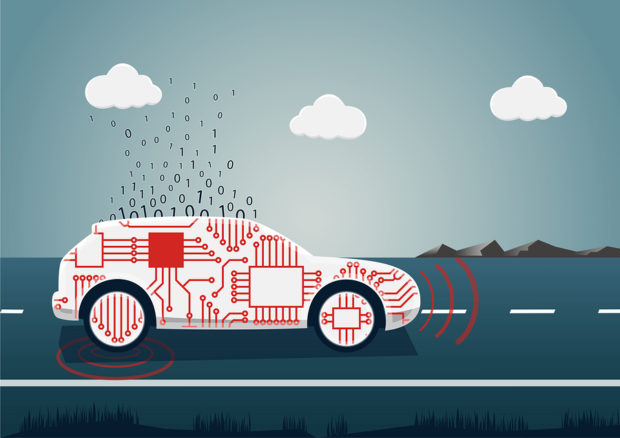A new survey report highlights the growing discomfort drivers have towards vehicle technology.
The survey by global digital cybersecurity company Kaspersky found that 72 percent of U.S. drivers are uncomfortable with the idea of automakers sharing their data with third parties.
A surprising 71 percent of drivers said they would consider buying an older car or one with less technology, in order to protect their privacy and security.
The report, “Is my car spying on me?” captures drivers’ thoughts about automakers’ use of personal data gleaned from connected cars.
A majority (87 percent) of survey participants said automakers should be required to delete their data upon request, and only 28 percent said they have some idea what kind of data their car collects.
With most car companies’ data policies reserving the right to share consumer data with third parties, the security risk is enormous and beyond the consumer’s control, Kaspersky said.
The November 2023 survey was comprised of 2,000 U.S. drivers.
The results show that while drivers may be ready to accept some level of data collection, they want limitations in place so that their personal data remains secure.
Seventy-two percent of respondents said they were uncomfortable with the idea of an automaker sharing their data with third parties, while 37 percent said they were “very uncomfortable.”
A surprising 71 percent of drivers said they would consider buying an older car or one with less technology, in order to protect their privacy and security.
More than three-quarters of drivers (76 percent) expressed concern when presented with research findings showing that zero out of 25 car brands Mozilla researched met its minimum security criteria.
The study also captured data about how drivers are using tech in their cars, with most pairing their phone with their car in some way.
Forty-eight percent said they use either Android Auto or Apple CarPlay, while 33 percent don’t have it, and only 19 percent have it but choose not to use it.
Privacy experts recommend avoiding these services to prevent data collection.
Meanwhile, only 20 percent of drivers said they don’t use Bluetooth in the car.
Forty-two percent of those who do use Bluetooth said they choose not to share their phone’s address book with their car, another move recommended by privacy experts.
When asked why they think automakers might be collecting data about them (without being limited to a single answer), half (49.5 percent) said they think it’s to sell it to advertisers or other third parties, while 40 percent think it’s to share with insurance companies, 30 percent think it is for safety, and 27 percent think it is to provide better customer service.
40% think automakers collect their data to share with insurance companies.
Twelve percent said they don’t know and just 8 percent said they don’t think automakers are collecting their data.
While drivers worried about how their data is handled, only 42 percent of respondents said they’re worried about the car collecting their personal data in the first place.
The level of concern was greatest among 18-24 year-olds (52 percent), compared to just 33 percent among those 55 and over.
Young drivers were also the most likely (81 percent) to say they would consider buying and older car or one with less technology, in order to protect their privacy.
“It’s easy to take for granted how much your car knows about you,” said Kurt Baumgartner, principal security researcher at Kaspersky’s Global Research and Analysis Team. “A connected vehicle knows where you go, how fast you get there and what you listen to on the way – even potentially what your kids are doing in the backseat. And the data collection policies of many automakers go far beyond that, allowing them to track and share things like users’ marital status and other surprisingly personal information that gets connected through their phone.”
“The bounds of property rights and ownership are clearly being bent, and people appear to be getting denied the level of control over their personal data that they expect. Our data is highly valuable, as is our privacy. As drivers, we need to advocate for privacy safeguards and common sense ownership agreements where we can enjoy the convenience of tech-enabled cars without having to give it all up,” he added.
Some ways to protect car-connected data:
- Don’t install your car’s mobile app on your phone.
- Don’t activate Apple’s CarPlay or Android Auto pairing functions.
- When you pair your phone via Bluetooth, don’t allow the car to access your address book or give it other permissions.
- Buy an older car or a car with a minimal set of “smart” sensors or no communication module.
- Ask about the manufacturer’s privacy policy when you purchase a new car.
- Use added security to protect your phone and other primary devices.




















 Four Practical, Data-Backed Steps for Preventing Nuclear Verdicts®
Four Practical, Data-Backed Steps for Preventing Nuclear Verdicts®  AI Got Beat by Traditional Models in Forecasting NYC’s Blizzard
AI Got Beat by Traditional Models in Forecasting NYC’s Blizzard  Markel Group Announces Leadership Changes
Markel Group Announces Leadership Changes  From Skill to System: The Next Chapter in Insurance Claims Negotiation
From Skill to System: The Next Chapter in Insurance Claims Negotiation 